Our Global Economy May Be Built On A False And Unsustainable Myth — This is Why:
The socio-economic and ecological problems of our times might be caused by major misconceptions at the core of the global economy.
All theories of economics are based on a myth told in every school — that resources are limited and desires unlimited — which implies that:
- scarcity is unavoidable
- unfulfillment is unavoidable
- the purpose of the economy is to keep producing more and more products and services to respond to these unlimited desires (we can understand why the obsolete GDP is the main performance indicator of the entire global economy)
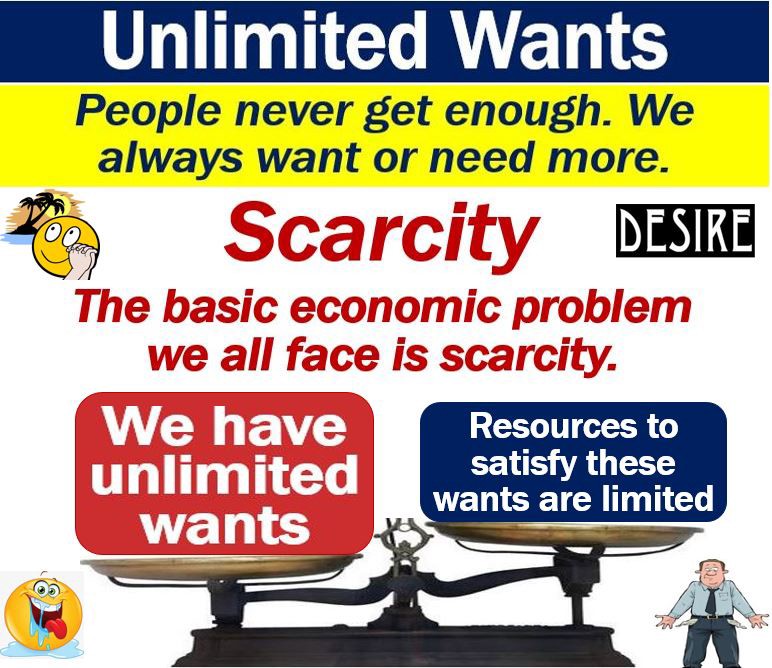
Classical Economic Theory
This theory is however irrational as the limited beings that we are can’t have unlimited desires (some humans appear to be afflicted by an inability to accept that they are mortal limited beings).
The illusion of unlimited desires is absurd and counterproductive as it can only result in scarcity, dissatisfaction and systemic unsustainability.
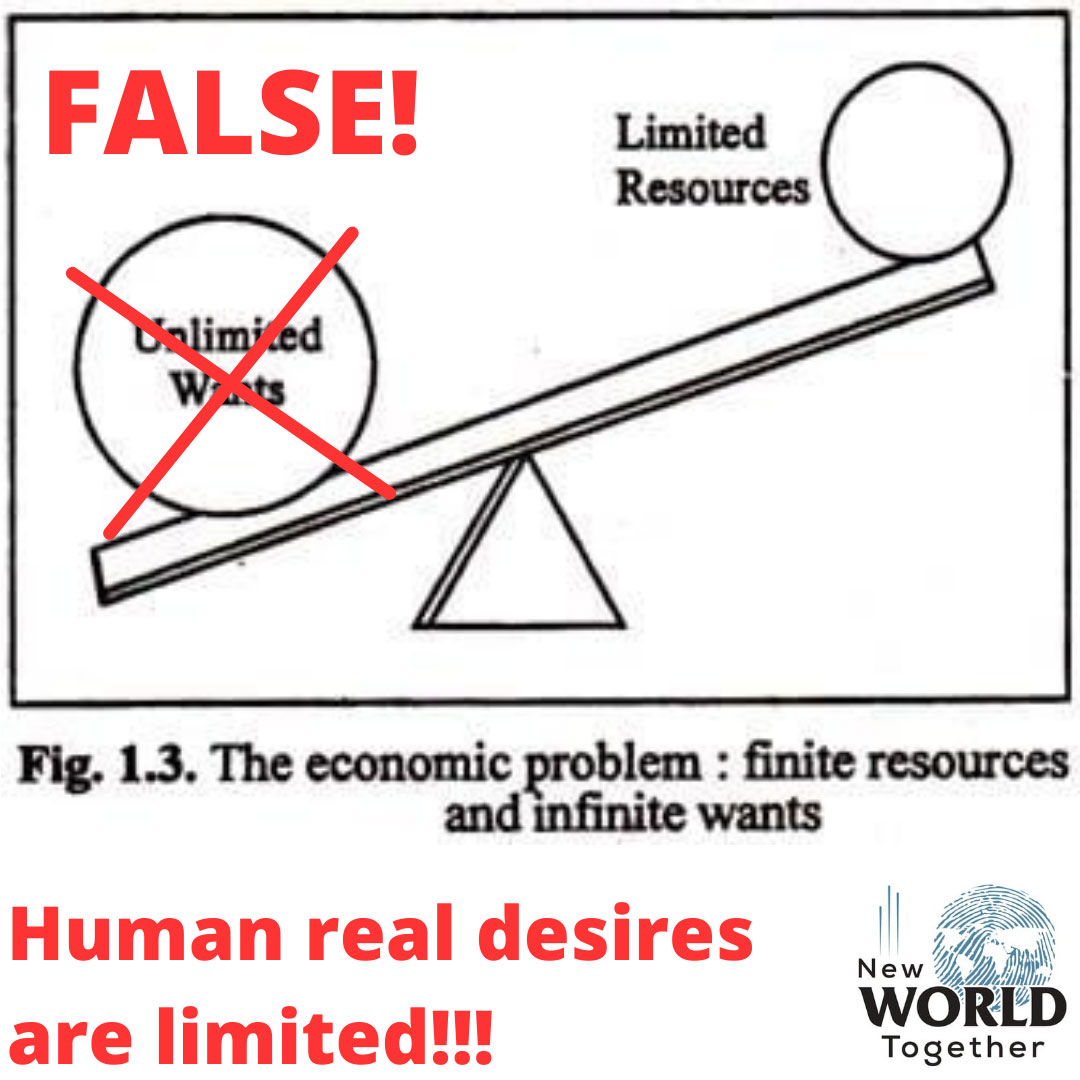
The global economy is based on a false assumption
The myth of unlimited desires is also extremely dangerous on a finite planet with abundant yet finite resources. It legitimizes a ruthless competition for hoarding wealth in excess (the rat race) resulting in resource overconsumption, ecosystem destruction, mass extinction, growing inequality and financial debts.
It perpetuates scarcity leaving a large part of the human population in a situation of stress and deprivation while a minority grabs most of the wealth produced.
It sets the economy on an unsustainable path towards self termination — together with the entire human species and a fair share of wildlife on earth — as it overshoots and destroys the biocapacity of our planet. Not a small mistake to be ignored, you may agree.
Where is this illusion of unlimited desire coming from?
According to our findings, those who came up with the absurd theory that people never get enough and can’t be satisfied were affected by lack of self knowledge and therefore had no idea what they really wanted — one who doesn’t know oneself doesn’t know what one truly wants and can therefore never be contented. This resulted in the delusional belief that human desires are unlimited: an ego-trip of western origin projected on the entire human species that has shaped the foundation of the global economy and is now sending us on the verge of a planetary disaster (our beliefs shape our society and through it the nature of our reality).
Lack of self knowledge is not happening by accident but as the result of unresolved past traumas inducing self disconnection. At the core of the belief in unlimited desire is the repressed fear of not having enough, itself associated with an ancestral collective trauma of scarcity, linked with experiences of famines and severe deprivation (followed with the compensating pattern to compulsively hoard resources). — Yes, we live in a universe in which everything is interdependent and interconnected.
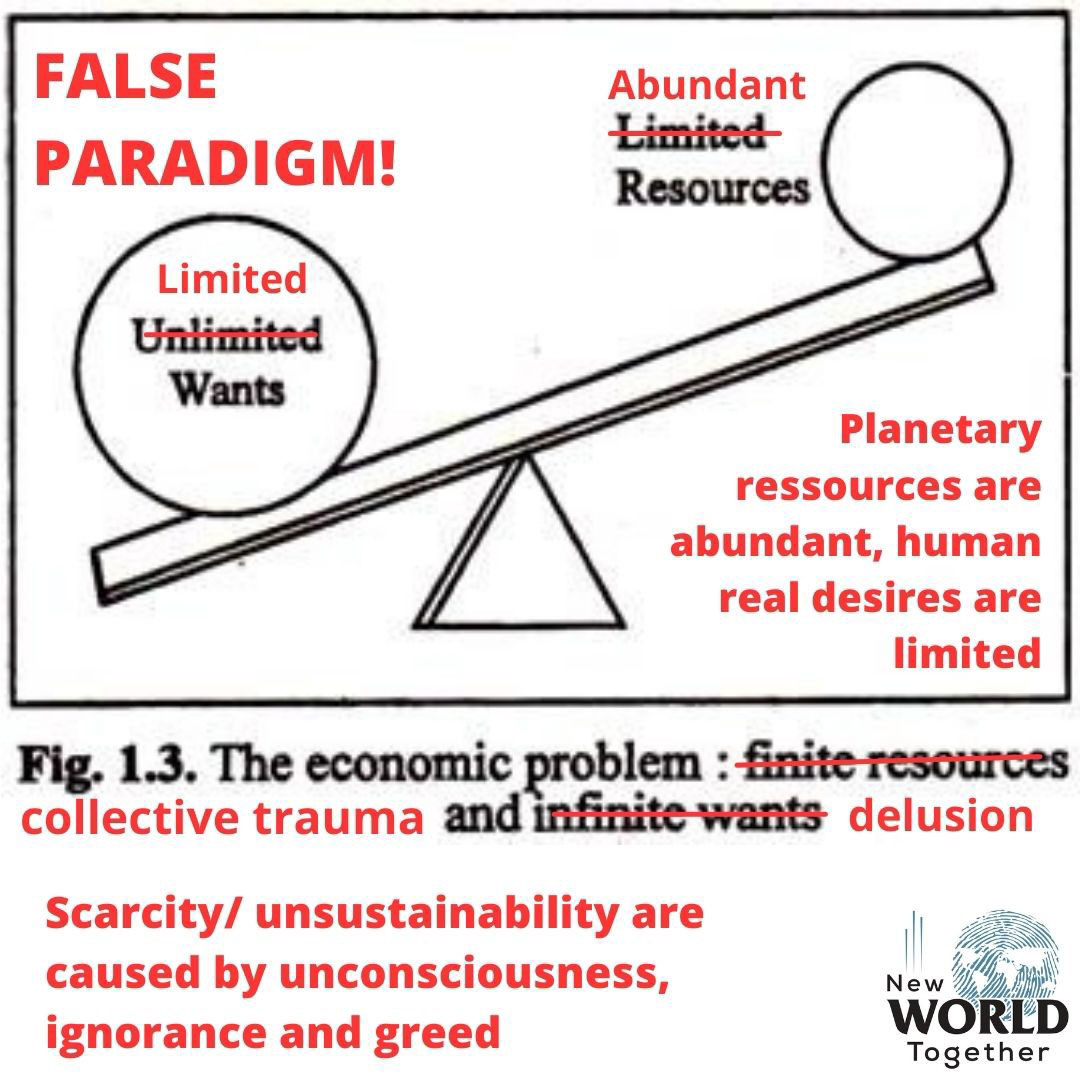
A false assumption caused by unresolved collective trauma
It’s easy to understand, hard to accept — how deeply wounded and unconscious most of humans still are — and how dangerously unsustainable it is to not be aware of it and to not address it.
To resolve this fundamental issue, the economic problem must be updated: it is not about scarcity but about a sustainable and fair repartition of our abundant planetary resources to fulfill everyone’s limited basic needs as a priority (the only way to address the collective trauma and fear of scarcity) and then our limited true desires (to self realize, to have meaning, to be healthy, to feel free, loved, happy, safe).
An update on the outdated economic paradigm is not an option but a vital need, as trying to respond to imaginary unlimited needs with limited resources is a deathtrap. As Ghandi’s quote reads: “The world has enough for everyone’s need, but not enough for everyone’s greed”.
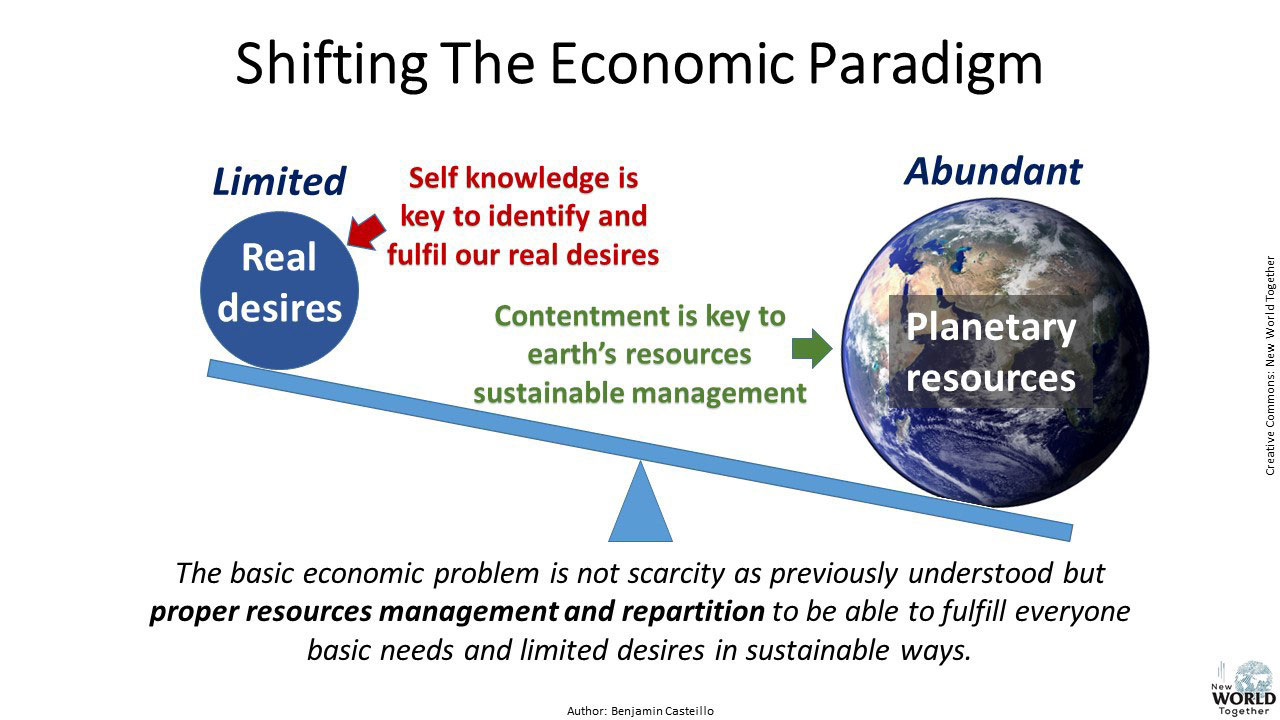
The New Economic Problem: Fulfilment of Needs with Sustainable Management of Resources
First, our world leaders and economists need to understand that the problem is not scarcity, but hoarding, overexploitation and waste of resources. Of course this problem won’t be resolved without addressing its root cause: unresolved trauma, existential fear, self disconnection and addictions. And this will require a whole new economy and regenerative paradigm.
It starts with a realisation: that self healing is necessary to be part of the solution and bring reason back to our world. The key to know who we truly are and what we really want.
The hidden key to the sustainable transition.

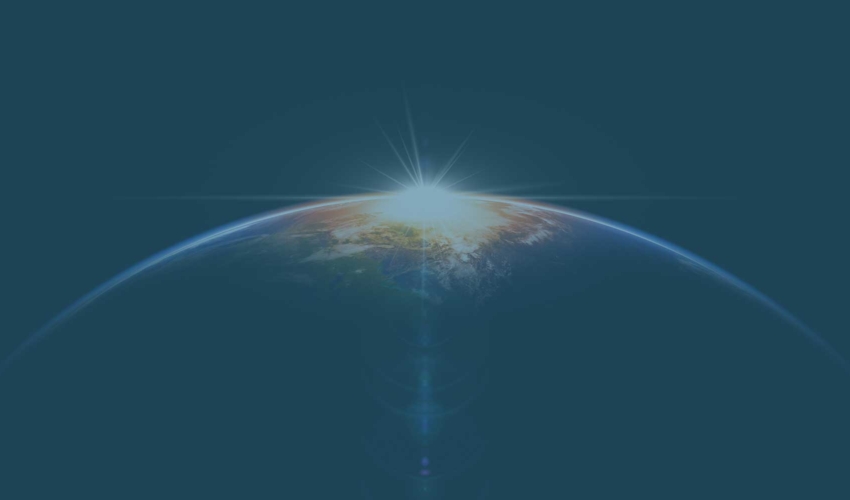

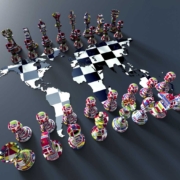
Leave a Reply
Want to join the discussion?Feel free to contribute!